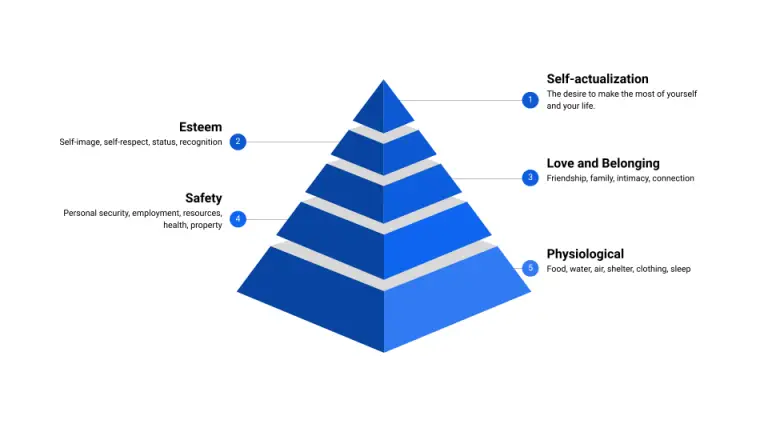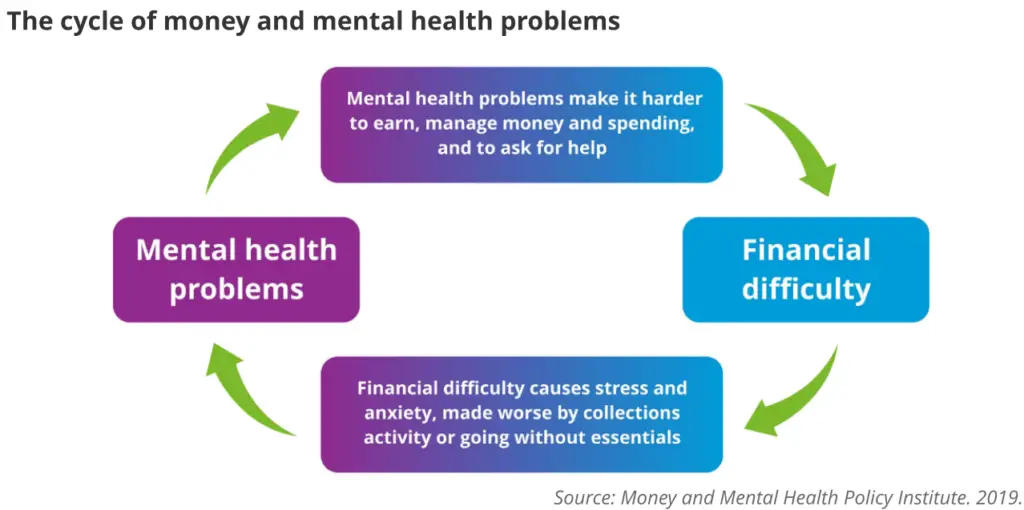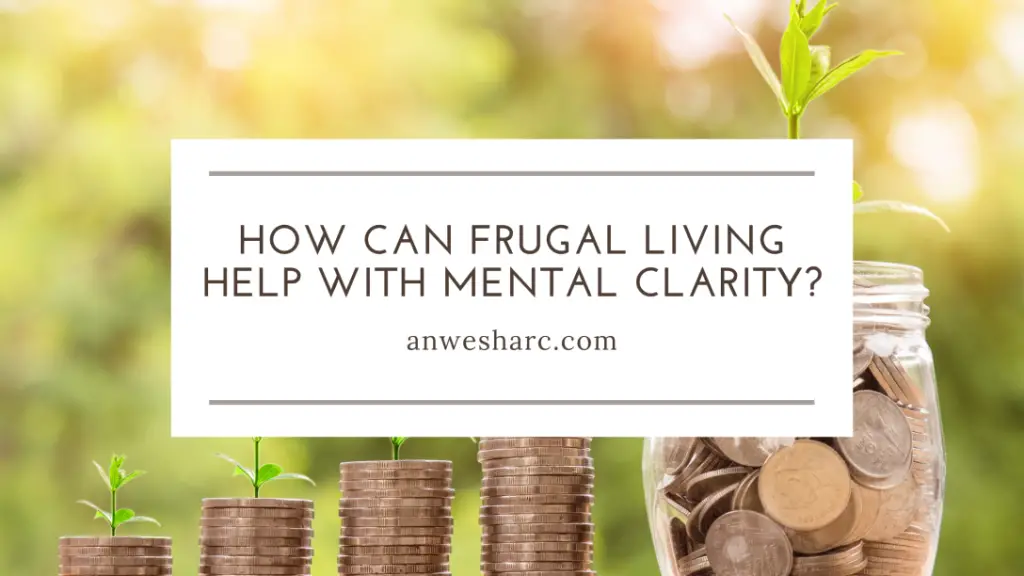Introduction
Living a frugal lifestyle can have a significant impact on our mental health. Many people associate frugality with financial benefits such as saving money and reducing debt. However, the connection between frugal living and mental health goes beyond just financial well-being. In this article, I will explore the various ways in which frugal living can positively influence our mental health and overall well-being.
The Mindset Shift
One of the key aspects of frugal living is adopting a minimalist mindset. By embracing minimalism, we learn to prioritize what truly adds value to our lives and let go of the consumerist mentality. This shift in mindset can lead to a sense of contentment and reduce feelings of stress and anxiety that often arise from the constant pursuit of material possessions.
Financial Stability
Financial stress is a major contributor to mental health issues. By practicing frugal living and being mindful of our spending habits, we can achieve financial stability and alleviate the burden of debt. When we have control over our finances, we experience a sense of security and freedom, which in turn can improve our mental well-being.
Increased Creativity and Problem-Solving Skills
Frugal living requires finding innovative ways to meet our needs and wants with limited resources. This necessity often inspires creativity and enhances problem-solving skills. As we find alternative solutions and become more resourceful, our self-confidence and sense of accomplishment grow, leading to a positive impact on our mental health.
Greater Appreciation for Simple Pleasures
Living frugally encourages us to find joy in the simple things in life. By opting for experiences and activities that are low-cost or free, we learn to appreciate the beauty of nature, the warmth of meaningful relationships, and the satisfaction of personal growth. This shift in focus towards gratitude and mindfulness can greatly improve our mental well-being.
frugal living is not just about financial gain; it also positively impacts our mental health. By adopting a minimalist mindset, achieving financial stability, nurturing creativity, and embracing simplicity, we can experience greater contentment, reduced stress, and enhanced overall well-being. So, let us explore the world of frugality and discover the profound connection it has with our mental health.

The Connection Between Frugal Living and Mental Health
Understanding Frugal Living
Frugal living is a lifestyle choice that involves consciously making economic decisions to live with greater financial efficiency. It is about being intentional with our money and resources, prioritizing needs over wants, and seeking ways to save and minimize unnecessary expenses. This mindset shift can have a profound impact on our mental and emotional well-being.
Defining Frugal Living
Frugal living is not about being cheap or miserly. Instead, it’s about finding value in simplicity, mindfulness, and resourcefulness. It’s about making conscious choices to live within our means, avoiding impulsive purchases, and being content with less materialistic possessions. By embracing frugality, we learn to appreciate what we have, rather than constantly chasing after more.
Principles of Frugal Living
Frugal living is guided by several core principles. These include budgeting and tracking expenses, prioritizing savings and investments, practicing mindful spending, reusing and repurposing items, and seeking thrifty alternatives. By adhering to these principles, we gain a sense of control over our finances, reducing stress and anxiety associated with money management.
Benefits of Frugal Living
Adopting a frugal lifestyle can have a significant positive impact on our mental health. Firstly, it helps alleviate financial stress as we reduce debt, save money, and build a financial safety net. This sense of security enhances our overall well-being and reduces anxiety related to financial uncertainties.
Moreover, frugal living encourages simplicity and contentment, leading to increased satisfaction with the present moment. As we focus on mindful spending and investing in experiences over material possessions, we develop a greater appreciation for the simple pleasures in life. This shift in perspective promotes a sense of gratitude and fosters positive emotions.
Additionally, frugality promotes self-discipline and resilience, as we learn to resist instant gratification and make thoughtful choices aligned with our long-term goals. This newfound discipline spills over into other areas of our lives, helping us to stay focused, motivated, and mentally strong.
frugal living not only improves our financial well-being but also positively impacts our mental health. By adopting the principles of frugality and embracing a simpler lifestyle, we can experience reduced financial stress, increased contentment, and a greater sense of control over our lives. So why not give it a try and see how frugal living can positively transform both your wallet and your mind?
Exploring Mental Health
Importance of mental health
Mental health is a vital aspect of our overall well-being. It affects how we think, feel, and behave, and plays a significant role in our ability to cope with stress, manage relationships, and make sound decisions. Just like physical health, taking care of our mental health is crucial for leading a fulfilling and balanced life.
Factors influencing mental health
Several factors can influence our mental health, including genetics, environment, and lifestyle choices. One often overlooked lifestyle choice that can have a substantial impact is our approach to frugal living. Frugal living involves making conscious decisions about how we spend our money, time, and resources, prioritizing value and long-term benefits over short-term indulgences.
Effects of poor mental health
When we neglect our mental health, it can lead to a range of negative effects. Feelings of anxiety, depression, and stress can become overwhelming, reducing our overall happiness and sense of fulfillment. Poor mental health can also manifest in physical symptoms such as fatigue, sleep disturbances, and decreased immune system function. In extreme cases, it may even contribute to the development of mental illnesses.
By embracing a frugal lifestyle, we can potentially mitigate some of these negative effects. Frugal living encourages us to practice self-discipline and make intentional choices about our spending habits. This can lead to a sense of empowerment and control over our financial situation, reducing financial stress and improving our mental well-being.
Moreover, frugality often promotes a healthier lifestyle. Choosing cost-effective options for food, exercise, and self-care can lead to improved physical health, which has a direct impact on our mental well-being. Additionally, focusing on experiences rather than material possessions can foster a deeper sense of gratitude, contentment, and social connection, all of which contribute to better mental health.
there is a clear connection between frugal living and mental health. By prioritizing our mental well-being through intentional spending, healthier lifestyle choices, and fostering gratitude, we can enhance our overall quality of life. So, let’s start embracing frugality not only for its financial benefits but also for the positive impact it can have on our mental health.

The Relationship Between Frugal Living and Mental Health
Psychological impact of frugal living
Frugal living, or the practice of consciously and intentionally managing one’s expenses, has a significant impact on our mental health. By adopting a frugal lifestyle, we not only gain control over our financial situation but also experience a range of psychological benefits.
Reducing financial stress
One of the primary contributors to poor mental health is financial stress. Constantly worrying about money, struggling to make ends meet, or feeling overwhelmed by debt can take a toll on our well-being. Frugal living helps alleviate this stress by promoting mindful spending, budgeting, and prioritizing financial stability.
Adopting a frugal lifestyle allows us to live within our means, reducing the strain of financial obligations. By embracing simplicity and focusing on what truly matters, we can break free from the cycle of excessive consumption, debt, and financial anxiety.
Improvement in overall well-being
Frugality goes beyond the financial realm – it positively impacts our overall well-being. When we prioritize mindful spending and intentional living, we experience a sense of empowerment and satisfaction. By making conscious choices about our expenses, we are able to align our spending with our values and goals.
Furthermore, frugal living encourages us to embrace alternative sources of happiness, such as spending quality time with loved ones, engaging in hobbies, and pursuing personal growth. This shift in mindset allows us to find joy in simple pleasures rather than relying on material possessions for fulfillment.
Moreover, the act of saving money and building financial security fosters a sense of peace and stability. By having a financial cushion, we reduce anxiety about unexpected expenses or future uncertainties. This sense of security positively impacts our mental health, allowing us to better manage stress and worry.
the connection between frugal living and mental health is undeniable. By adopting a frugal lifestyle, we can reduce financial stress, improve overall well-being, and cultivate a healthy relationship with money. By understanding and embracing the psychological impact of frugal living, we can pave the way for a more fulfilling and mentally healthy life.
Frugal Living Habits to Improve Mental Health
Budgeting and Financial Planning
One of the key aspects of frugal living that can positively impact mental health is budgeting and financial planning. By diligently managing our finances, we reduce the stress and anxiety caused by financial instability. Developing a budget allows us to make informed decisions about our spending habits and prioritize our financial goals. This sense of control and organization directly contributes to our overall mental well-being.
Minimalism and Its Impact on Mental Health
Another important aspect of frugal living is embracing minimalism. By adopting a minimalist lifestyle, we focus on living with less, which can significantly reduce clutter and create a sense of calmness and order in our physical space. This simplicity promotes mental clarity and helps us to appreciate the things that truly matter in life. Letting go of material possessions can have a profound impact on our mental health, as it encourages us to shift our focus from material wealth to personal growth and experiences.
Embracing Self-Sufficiency
Frugal living often goes hand in hand with self-sufficiency, as it encourages us to find ways to save money and reduce reliance on external sources. Engaging in activities such as growing our own food, repairing our belongings, or learning new skills not only helps us save money but also boosts our self-confidence and sense of accomplishment. This increased self-reliance fosters a greater sense of self-worth and resilience, which are important factors in maintaining positive mental health.
frugal living and mental health are intricately connected. By adopting frugal habits such as budgeting, embracing minimalism, and fostering self-sufficiency, we can create a more stable and fulfilling environment for our mental well-being. These practices empower us to take control of our finances, live with simplicity, and find greater satisfaction in our everyday lives. So, let’s embrace a frugal lifestyle and experience the positive impact it can have on our mental health.
Healthy Alternatives to Costly Habits
Adopting a DIY lifestyle
Living frugally doesn’t mean sacrificing all the things we love. In fact, it can lead to a more fulfilling and mentally healthy life. One of the ways we can achieve this is by adopting a do-it-yourself (DIY) lifestyle. By learning new skills and doing things ourselves, we not only save money but also gain a sense of accomplishment and independence. Whether it’s repairing our own clothes, growing our own vegetables, or even building our own furniture, the satisfaction we experience can greatly improve our mental well-being.
Exploring free or low-cost hobbies
Engaging in hobbies is essential for our mental health, as they provide an outlet for relaxation and creativity. However, some hobbies can be quite expensive, causing unnecessary financial stress. By exploring free or low-cost hobbies, such as reading, hiking, painting, or even learning a musical instrument, we can cultivate our interests without breaking the bank. These activities not only provide enjoyment but also help reduce stress and anxiety, improving our overall mental well-being.
Prioritizing experiences over material possessions
In a society that often equates happiness with material possessions, it’s important to shift our focus towards experiences rather than things. Instead of constantly chasing after the latest gadgets or designer clothes, we can invest our time and resources in creating meaningful memories. Spending quality time with loved ones, exploring nature, and traveling to new places can enrich our lives in ways that material possessions simply cannot. By prioritizing experiences over material possessions, we can find true happiness and contentment, leading to improved mental health.
By adopting a DIY lifestyle, exploring free or low-cost hobbies, and prioritizing experiences over material possessions, we can foster a frugal living mindset that is not only financially beneficial but also greatly enhances our mental well-being. So, let’s embrace the connection between frugal living and mental health, and discover the true joys that a frugal lifestyle can bring.

Cultivating a Frugal Mindset for Better Mental Health
When it comes to mental health, many people think of therapy, medication, or self-care practices like meditation and exercise. However, one often overlooked aspect of mental well-being is our relationship with money and our consumption habits. As the founder of frugaldude.org, I’ve come to realize the strong connection between frugal living and mental health. In this article, I will explore how cultivating a frugal mindset can positively impact our mental well-being.
Shifting Perspective on Consumption
In today’s consumer-driven society, we are constantly bombarded with advertisements that urge us to buy the latest gadgets or trendy products. However, adopting a frugal mindset means shifting our perspective on consumption. Instead of chasing after material possessions for temporary happiness, frugal living encourages us to focus on what truly matters in life. By valuing experiences, relationships, and personal growth over material possessions, we can reduce feelings of stress, anxiety, and the constant need for more.
Building Resilience and Resourcefulness
Living a frugal lifestyle often requires us to be resourceful and find creative solutions to everyday challenges. This builds resilience, as we learn to adapt to different situations and make the most out of what we have. By embracing frugality, we develop problem-solving skills, which can have a positive impact on our mental health. It provides a sense of accomplishment and boosts our self-esteem when we are able to overcome obstacles and achieve our goals through resourcefulness.
Finding Contentment in Simplicity
Frugal living promotes the idea of finding contentment in simplicity. Instead of constantly seeking external validation through material possessions, we learn to appreciate the simpler things in life. By adopting a minimalist approach, we can declutter our physical and mental spaces, leading to a calmer and more peaceful existence. This sense of contentment can reduce feelings of overwhelm and increase our overall happiness and well-being.
cultivating a frugal mindset has numerous benefits for our mental health. By shifting our perspective on consumption, building resilience and resourcefulness, and finding contentment in simplicity, we can experience increased feelings of happiness, contentment, and overall mental wellbeing. So, let’s embrace frugality and discover the profound connection it has with our mental health.
Overcoming Challenges and Myths About Frugal Living
Addressing misconceptions about frugality
When it comes to frugal living, many people have preconceived notions that may create challenges or deter them from embracing this lifestyle. One common misconception is that being frugal means living a life of deprivation, constantly sacrificing our wants for the sake of saving money. However, this couldn’t be further from the truth. Frugal living is about being intentional with our spending and finding creative ways to live a fulfilling life while also saving money. It’s not about denying ourselves happiness, but rather being mindful of our choices.
Managing social pressures and expectations
Living in a culture that promotes consumerism can often lead to social pressures and expectations, making it difficult to maintain a frugal lifestyle. Friends and family may question our choices or make us feel guilty for not participating in lavish spending. However, it’s important to remember that our mental well-being should always take precedence over societal expectations. By openly communicating our values and reasons for embracing frugal living, we can help others understand and support our choices.
Finding fulfillment and happiness in frugality
Contrary to popular belief, frugal living can actually lead to increased fulfillment and happiness. When we focus on experiences rather than material possessions, we create space for meaningful connections and personal growth. We become more appreciative of life’s simple pleasures and free ourselves from the constant pursuit of material wealth. By aligning our spending habits with our values, we can enhance our mental well-being and find joy in the little things.
As we debunk these myths and overcome the challenges associated with frugal living, we open ourselves up to the numerous mental health benefits that come with it. By embracing a frugal lifestyle, we can reduce financial stress, improve our self-esteem, and cultivate a greater sense of control over our lives. So, instead of viewing frugality as a burden, let’s see it as a path to mental well-being and personal fulfillment.

Seeking Support: Frugal Living Communities and Mental Health
Benefits of Joining Frugal Living Communities
Frugal living communities provide a unique avenue for individuals to connect with like-minded individuals on their journey toward financial stability and mental well-being. Through these communities, individuals can find support, encouragement, and valuable insights that can greatly impact their overall mental health.
One of the primary benefits of joining a frugal living community is the opportunity to share experiences and tips for success. Engaging in discussions and conversations with others who share the same frugal lifestyle goals can be exceptionally helpful, as it offers a sense of camaraderie and shared learning. Whether it’s exchanging money-saving hacks, budgeting strategies, or prioritizing self-care while on a tight budget, being a part of these communities allows individuals to gain new perspectives and ideas.
Applying Community Support in Maintaining Good Mental Health
Frugal living communities can also serve as an essential source of emotional support, particularly during challenging times. The power of empathetic listening and understanding from individuals who have faced similar financial difficulties cannot be overstated. This support network not only helps individuals alleviate stress but also strengthens their mental resilience, providing reassurance that they are not alone in their struggles.
Beyond the practical financial aspects, frugal living communities often emphasize the importance of self-care and mindfulness. They encourage individuals to prioritize their mental and emotional well-being while navigating the challenges of maintaining a frugal lifestyle. By sharing coping mechanisms, stress-management techniques, and self-care practices, these communities empower individuals to take control of their mental health and find balance in their daily lives.
joining frugal living communities has proven to be advantageous for individuals seeking financial stability and good mental health. The support, encouragement, and resources provided within these communities foster a sense of belonging and connection, enabling individuals to learn from one another and develop practical strategies for managing both their financial and mental well-being. So, whether you are just starting your frugal living journey or seeking to enhance your mental health, consider joining a frugal living community today and experience the multitude of benefits it can offer.

Balancing Frugality and Self-Care
Prioritizing self-care in frugal living
As I delve into the connection between frugal living and mental health, I find it crucial to emphasize the importance of prioritizing self-care. While frugality often entails being mindful of our spending habits and making intentional choices, it should never come at the expense of our well-being.
One aspect of self-care in frugal living involves taking the time to address our mental health. Engaging in activities that bring us joy and peace should be seen as an investment in our overall well-being. Whether it’s spending quality time with loved ones, practicing mindfulness techniques, or pursuing a hobby, it’s essential to prioritize activities that nurture our mental health.
Recognizing when to invest in mental and physical well-being
While being frugal might necessitate making sacrifices, it’s important to recognize when to invest in our mental and physical well-being. This could mean seeking professional help when it comes to our mental health or investing in quality healthcare products and services.
Prioritizing mental and physical well-being doesn’t have to break the bank. Exploring affordable options such as community resources, free support groups, or online educational platforms can provide valuable resources without compromising our frugal lifestyle. The key is to be discerning and proactive in finding accessible and cost-effective ways to care for ourselves.
Avoiding excessive deprivation
Frugal living doesn’t mean subjecting ourselves to excessive deprivation. While it’s essential to be mindful of our spending and make intentional choices, denying ourselves basic needs or essential pleasures can do more harm than good in the long run. Striking a balance between saving money and enjoying life’s simple pleasures is crucial for maintaining a healthy mindset.
Being frugal can actually empower us to make conscious decisions that align with our values and long-term goals. By finding creative and resourceful ways to fulfill our needs and desires without overspending, we can foster a sense of fulfillment and contentment.
As we navigate the connection between frugal living and mental health, it’s important to maintain a holistic approach that allows us to prioritize our well-being without compromising our financial goals. By finding the balance between frugality and self-care, we can build a sustainable lifestyle that supports both our mental and financial health.
Conclusion
As I have explored the connection between frugal living and mental health, it has become evident that these two aspects of life are closely intertwined. By adopting a frugal lifestyle, individuals can experience significant improvements in their overall mental well-being.
Financial Stability and Peace of Mind
One of the key benefits of frugal living is the attainment of financial stability. By living within one’s means and making conscious decisions about spending, individuals can avoid accruing unnecessary debt and financial stress. This newfound financial stability brings a sense of peace of mind, allowing individuals to focus on their mental health rather than worrying about money issues.
Reduced Stress and Anxiety
Frugal living also promotes a simpler and more minimalist lifestyle. By prioritizing needs over wants and practicing mindful consumption, individuals can free themselves from the burden of excessive material possessions and the pressure to keep up with societal expectations. This reduction in clutter and materialism leads to less stress and anxiety, as individuals no longer feel the need to constantly acquire and accumulate possessions.
Increased Self-Control and Discipline
Frugal living requires a certain level of self-control and discipline. By consciously choosing to make mindful and intentional decisions about spending and saving, individuals develop a greater sense of control over their finances and their lives in general. This increased self-control spills over into other aspects of life, leading to improved mental health and well-being.
Enhanced Sense of Purpose and Meaning
When individuals embrace a frugal lifestyle, they often align their spending habits with their values and priorities. This intentional approach to spending brings about a sense of purpose and meaning, as individuals feel that their money is being used in ways that truly align with their beliefs and goals. This sense of purpose and alignment contributes to overall life satisfaction and improved mental well-being.
In conclusion, the connection between frugal living and mental health is undeniable. Through financial stability, reduced stress, increased self-control, and enhanced sense of purpose, individuals can experience improved mental health and well-being. It’s time to consider incorporating frugality into our lives, not only for the financial benefits but also for the positive impact on our mental health.

